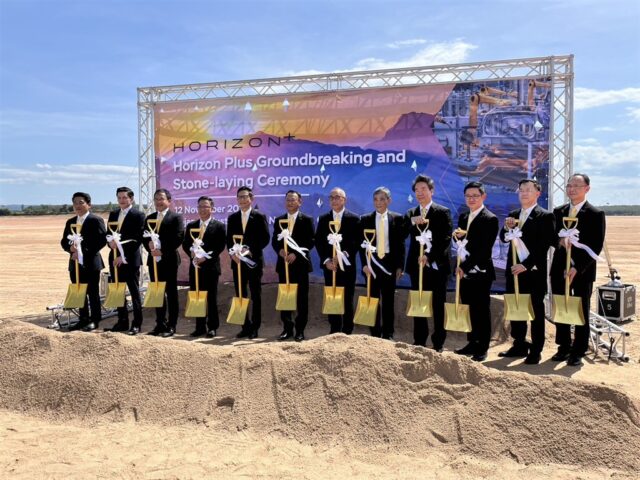Taiwan-based manufacturing leader Foxconn and PTT, the Thai oil giant, have broken ground on an EV factory in Thailand as part of a joint venture. Set to open in 2024, the plant will initially produce 50,000 cars annually before scaling up operations to 150,000 electric vehicles per year by the end of the decade.
The joint venture is expected to invest USD1 billion on the EV factory in Thailand which will be located at the Rojana Nong Yai Industrial Estate. The Eastern Economic Corridor (EEC) facility is eligible for a number of privileges under a Thailand Board of Investment (BOI) scheme designed to stimulate activity in the EV sector.
PTT Chairman Khun Thosaporn Sirisumphand believes the new EV factory in Thailand is a key first step in the regional promotion of electric vehicles by Foxconn and PTT. The manufacturing hub will produce EV car parts as well.
For Foxconn, known locally as Hon Hai, the joint venture with PTT is part of a larger move into the electric vehicle space. It is producing a car for the Taiwan market in addition to building a battery cell plant in Kaohsiung. The company also has an agreement in place to produce EV prototypes in America with a US startup.
Also Interesting: Why did Shell just acquire a 50% stake in this parking-focused Malaysian tech startup?
Can Thailand speed up EV production?
While the agreement between Foxconn and PTT to build an EV factory in Thailand is a welcome move, more work is still needed. The Thailand Automotive Institute (TAI) EV roadmap set a goal of producing 2.5 million cars in Thailand by 2030 with 60 percent of those being sold domestically. In order to reach these figures, the TAI believes a strong push from the government is required that makes EVs more appealing to both make and purchase in Thailand.
“Thailand aims to be a production hub for EVs in the long term in order to maintain the country’s automotive competitiveness in Southeast Asia,” Adisak Rohitasune, TAI Acting President, told the Bangkok Post. “The government should emphasize the EV industry with attractive privileges and incentives for both demand and supply.”
Keep Reading: The Thailand EV roadmap and how the country plans on navigating it


































